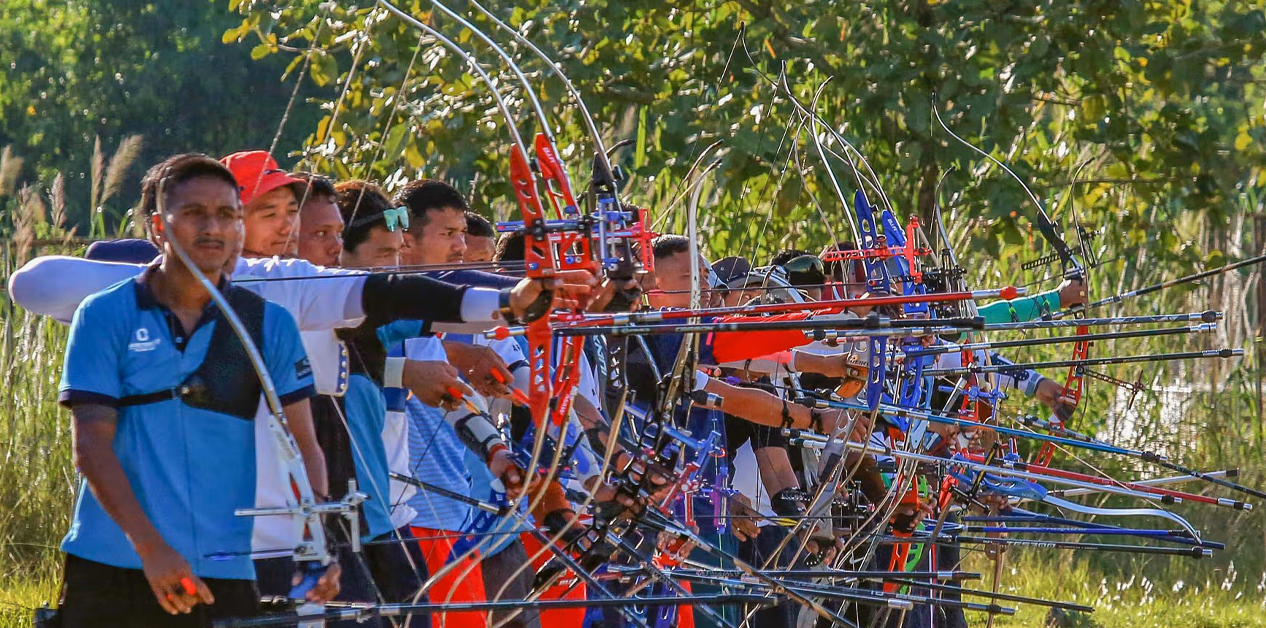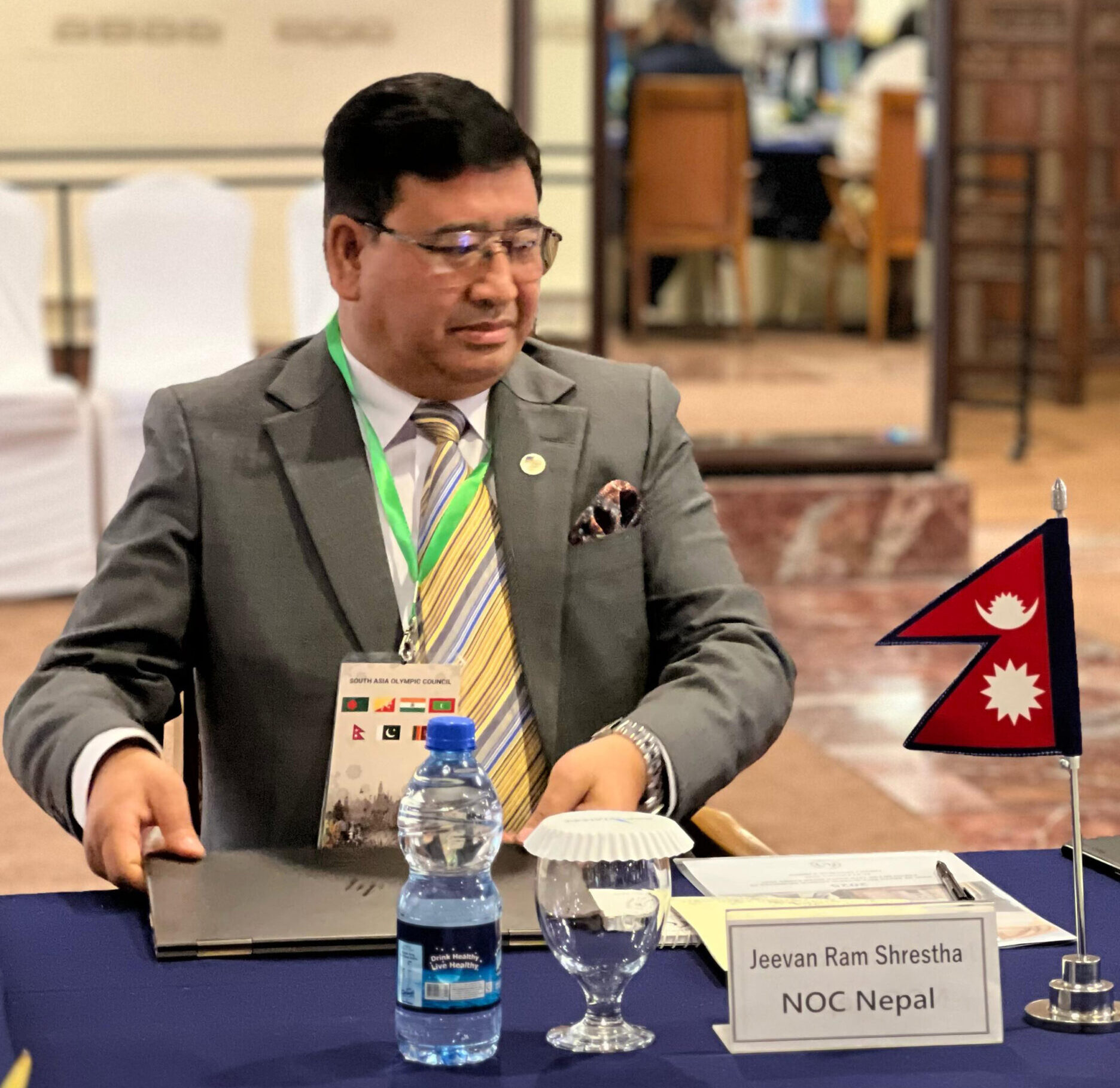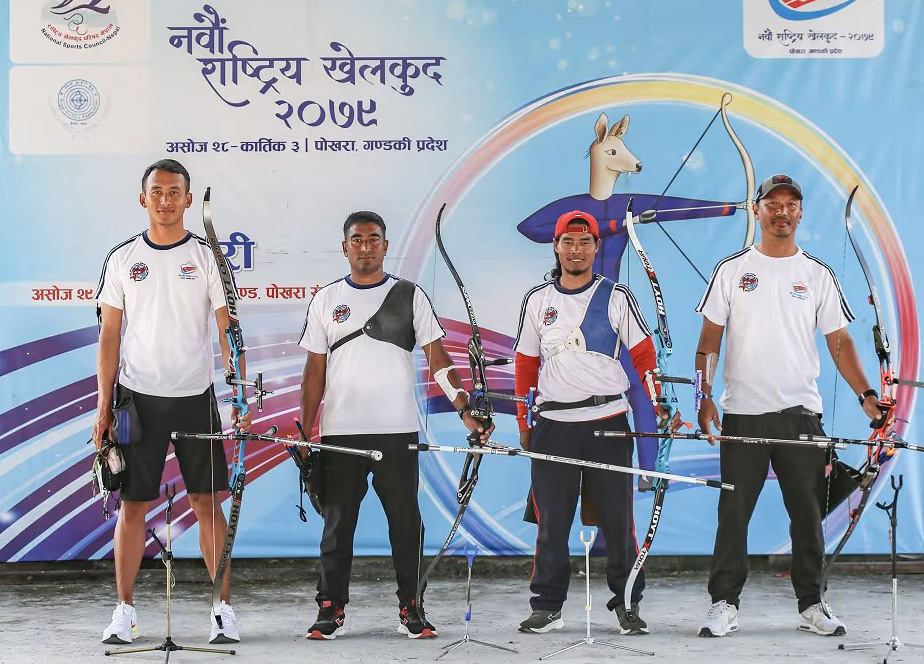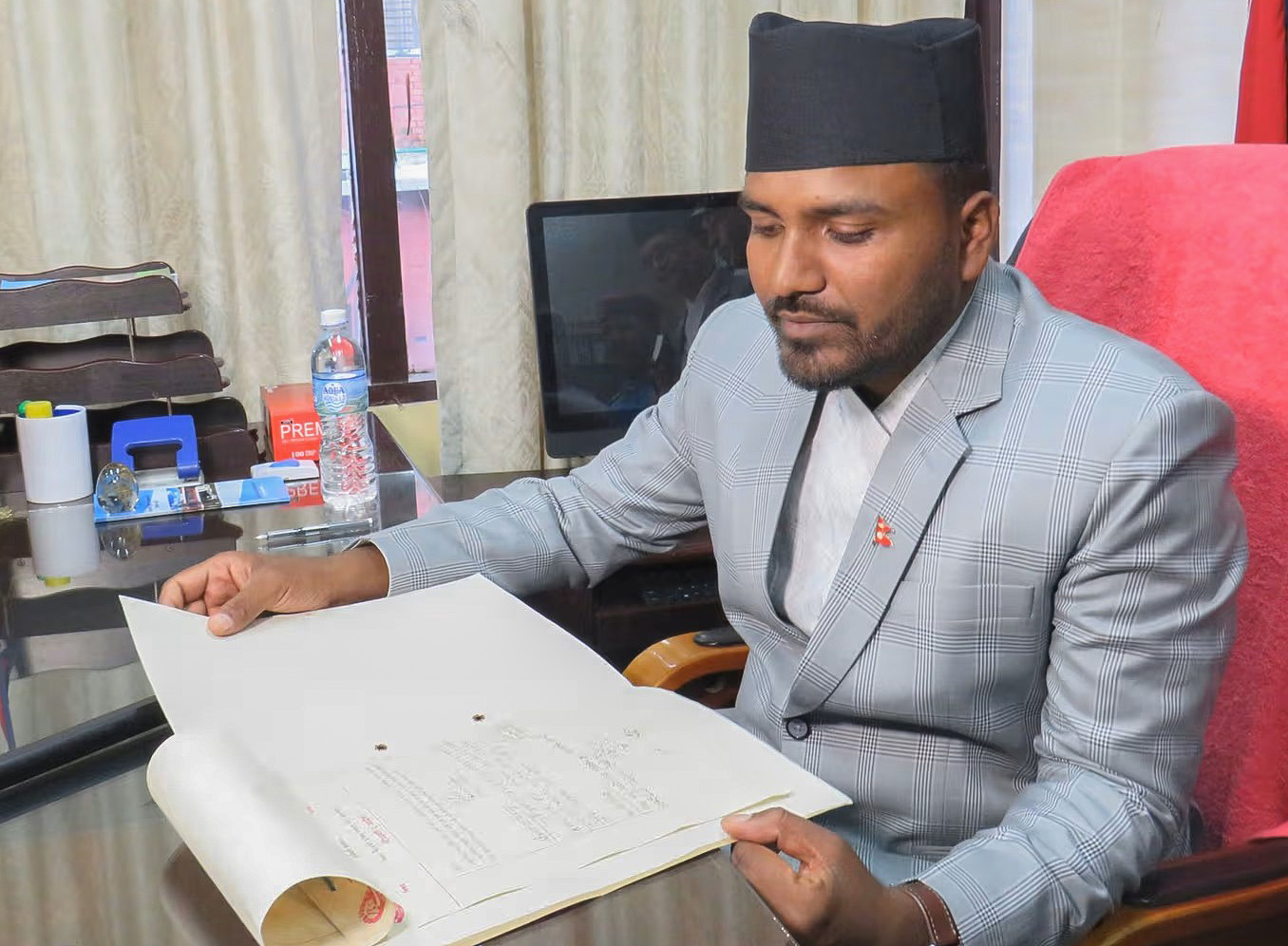
NSC funding props up inactive sports associations from the very top

KATHMANDU: No office, no athletes, and no rink to play the game.
This is the lamentable state of the Nepal Ice Hockey Association. After an existence spanning nearly 12 years, the association remains profoundly unable to manifest its foundational purpose. To date, there is no verifiable record of the association having organized even a solitary sporting event on an ice rink.
The paradox deepens: despite an absolute deficiency of athletes, the association maintains a full complement of functionaries, including the president, vice president, and general secretary. These officials routinely promulgate ambitious new programs and initiatives annually, yet consistently abstain from executing any substantive game activities.
A case in point was the proclamation made on December 5, 2016.
A plan was announced to build an artificial ice rink at the Pokhara Sports Complex for ice hockey. Announcing this, the then president of the association, Lok Bahadur Shahi, proudly stated, “Nepal will now also become a country that plays ice hockey.”
However, nine years after that announcement, not only has the ice rink not been built in Pokhara, but the association is still confused about what to do. Why is the Ice Hockey Association remaining frozen like ice without any activity? Rajesh Rijal, general secretary of the association, says, “It is like chewing stones to organize ice hockey in Nepal. We do not have an artificial rink. Frozen lakes are also only at high altitudes (above 4,000 feet). That is why it has been difficult to organize the game.”
This association was formed in 2014 under the chairmanship of Shahi. The office was located in Durbarmarg. However, at the time of the association’s formation, neither was an estimate made of how much budget was required to build the sports infrastructure, nor was a feasibility study conducted to see if Nepal’s geography was suitable for this sport. The association, opened without technical preparation, is now a mere name. To date, the association has not even been able to build a single practice venue. To what extent is this true? The association itself is now limited to a satchel bag. Officials of the association, which has no office anywhere, carry the letterhead and stamp in their bags.
In such a situation, is it possible to advance ice hockey? In response to the question from Nepal News, Rijal says, “We have made plans to hold a competition in Tsho Rolpa. But the transportation cost is high. Please understand that the association is not in a position to transport people by helicopter!”
The association, citing budget problems, has not been able to formulate an alternative plan for sports activities.
Tool for personal gain
The Ice Hockey Association is just one example. There are many such sports associations that are not involved in sports activities and are operating on a satchel bag.
Sports associations should be formed to develop the respective sport. However, more than half of the sports associations in Nepal exist in name only. These associations appear to have been formed for personal gain. The trend of association officials continuously traveling abroad without prioritizing the sport and the athletes demonstrates this.
Speaking of the Ice Hockey Association, its president, Bhuwan Kumar Pathak, frequently travels abroad in the name of this association. Representing the association, he has visited countries such as Finland, Norway, and Denmark. He is a Bagmati Provincial Assembly Member on behalf of the Rastriya Prajatantra Party.
To receive recognition, national sports associations must register with the National Sports Council (NSC). Such associations must be renewed every year and must submit an audited report of income and expenditure during the process. The National Sports Development Act, 2020, stipulates that only one sports association should be formed for a single sport.
According to this, more than 200 sports associations registered with the NSC, but only 62 are currently active. Of these, half a dozen associations have not been able to organize a national competition for three years. Some associations have not been able to organize any competition since their establishment. They have neither produced players nor sent any official team abroad.
Every year, these associations hold a general assembly in some hotel and submit a report to the NSC, claiming a work plan has been created. Based on this, it is a fact that they request budgets and recommendations for foreign travel, and officials such as the president, vice-president, and secretary general continuously participate in various international seminars.
The work of the associations in sports is found only on paper. Looking at the development of the sports sector, the organization of competitions, and the production of players, no noticeable effort seems to have been made. Among them is the Nepal Ski Association. The office of the association, led by Jeevan Ram Shrestha, has its name in large letters on a hoarding board, but its sports activity is virtually zero. Secretary General Bijay Shrestha has been announcing the organization of competitions at press conferences for the past two years. But it has not happened yet. He states that the failure to organize the competition is not the fault of the association but of climate change and the weather. “We have not been able to organize the competition because there is no snow due to climate change,” he says. “It is not within our power; what can we do when the weather itself betrays us?”

Nepal Olympic Committee President Jeevan Ram Shrestha
The Ski Association, formed in 2012, is also an instance of the sports sector being embroiled in politics. Jeevan Ram has continually held sway over sports institutions, transitioning politically from the CPN (Maoist Centre), the CPN (UML), and most recently to the CPN (Unified Socialist) party. He has served as NSC Member Secretary twice and, since last year, has been serving his third term as President of the Nepal Olympic Committee.
Jeevan Ram has been sending various officials on foreign trips in the name of the Ski Association. However, he has not contributed much to player development or competition operations. Doesn’t this situation hinder the progress of the sports sector? In response to this question, Bijay, Secretary General of the Ski Association, says, “That is not the case. We have about 12 players. We have sent them abroad for training. It is just that we are not in a position to hold games here.”
According to Yubaraj Lama, former NSC Member Secretary, the political change in 1990 brought much upheaval to the sports sector. Its direct effect began to be seen even in the NSC, the mother institution of sports. The Member Secretary of the NSC began to be appointed not from people related to the sports sector or sports enthusiasts who understand the game, but from figures close to political parties. After that, groups with political access began to open their own sports associations. Specifically, during the tenures of Yuddha Bikram Shah, Raj Bahadur Singh, Rukma Shumsher Rana, Keshav Sthapit, and Jeevan Ram Shrestha, the number of sports associations increased greatly. “After 2001, the trend of opening parallel associations for the same sport increased. The Member Secretary would recognize associations close to them,” says Lama.
The Ski Association, formed in 2012, is also an instance of the sports sector being embroiled in politics. Jeevan Ram has continually held sway over sports institutions, transitioning politically from the CPN (Maoist Centre), the CPN (UML), and most recently to the CPN (Unified Socialist) party.
The Nepal Futsal Association was opened in this manner. Private clubs and some schools have contributed to the development of futsal, but the presence and activities of the association formed to develop this very sport are not seen anywhere. While the Futsal Association remains dormant, the All Nepal Football Association (ANFA) began operating the Futsal League last year. This demonstrates the irony of the sports sector.
The association was established in 2016 during the tenure of the then NSC Member Secretary, Keshav Kumar Bista. For this, Bista put forward Dev Kumar Adhikari and Batuk Krishna Thapa, who were close to his own party, the CPN (UML). A small room was even arranged in Tripureshwar to prepare the association’s structure and conduct administrative work. Adhikari, who appeared active for some time, later entrusted the association’s responsibility to Thapa and left. Adhikari was also a board member of the NSC.
However, the Futsal Association, led by Thapa, has not been able to produce a single coach in over half a decade. Futsal requires a court, licensed coaches, referees, and linesmen. But let alone these, the association does not even have a single player of its own. It has not organized a single national-level competition to date. It does not have its own office. The association has not even been renewed. However, it continues to submit work plans to the NSC.

Athletes during the archery competition at the 9th National Games. Photo: NSC
Adhikari, former president of the Futsal Association, also admits that the association is inactive. He says, “I handed over the responsibility to Batuk, saying I could not run the association by always spending money from my own pocket. He has not been able to do anything either.”
The Ministry of Youth and Sports has included breakdance in the Asian Games. There is the Nepal Breaking and Dance Sports Association for the development of this sport. But there is no information about where its office is, who the players are, who the coach is, and what activities it is conducting.
The Nepal Fencing, Nepal International Taekwondo Federation, Nepal Para Olympic Committee, Baseball, Rafting and Canoeing, Shooting, Special Olympics Nepal, Mountain Sports Federation, National Deaf Sports Committee, Modern Pentathlon Federation, National Martial Arts Games Federation, Nepal Athletics Association, Nepal Equestrian Association (horse riding), and Nepal Archery Association are registered with the NSC. But these associations are confined to the NSC files; they are neither active nor effective. Many such associations have not been able to organize a national competition for more than three years.
Some associations, however, create records that show work being done by hosting school-level competitions. The Taekwondo Federation has done this. Gham Bahadur Thapa, Secretary General of the Federation, says, “It cannot be said that we have not played any games. We held a school competition last year. We are conducting referee seminars.”
Law for one, loophole for another
Section 28(e) of the Sports Development Act, 2020, mandates that every sports association must organize at least one national-level competition every year. However, most associations have failed to hold competitions. Beyond that, the associations do not even renew themselves. Out of the 62 currently active associations, 33 have not yet renewed. Yet, the NSC continues to grant continuous approval for competitions.
Even those that have renewed, such as the ice hockey, ski, boxing, baseball and softball, and shooting associations, have been violating the act’s provision requiring one national competition per year. Among these, the Nepal Archery Association stands out. This association, which participated in the 2016 Rio Olympics, has not been able to hold any program for three years. The association has been inactive since its participation in the National Sports Competition held in 2022. The association lacks not only its own training ground but also arrows and target boards.
During the 13th South Asian Games, the NSC imported 25 target boards. In the Ninth National Sports Competition held in Pokhara in 2022, players were able to use those same boards. Ramesh Prasad Siwakoti, Secretary General of the Archery Association, says that since those boards are now unusable, the Archery Association has not been able to hold any programs. He says, “We do not have target boards. NSC officials said they would buy them, but they have not been purchased yet.”
The NSC has not allocated a budget to the Archery Association. Siwakoti alleges that the NSC has not provided the funds allocated to the association in the government’s Red Book. He states that because the NSC did not provide the funds, the amount was frozen for two consecutive years. The NSC, however, has placed the association on a non-financial support list as an act of punishment, citing Siwakoti’s membership in the Nepal Olympic Committee led by Jeevan Ram Shrestha. The government declared Jeevan Ram’s Olympic Committee ineligible and formed an ad hoc committee led by Dhurba Bahadur Pradhan on August 11, 2024, under the then Minister of Youth and Sports, Teju Lal Chaudhary.
The NSC has started collaborating with the Gandaki Sports Development Board, bypassing the Archery Association. In June this year, the Gandaki Province Archery Association, with the support of the Board, organized the Seventh National Indoor Archery Competition in the Pokhara Multipurpose Covered Hall. Tanka Lal Ghising, Member Secretary of the NSC, personally attended the opening of that program.

Minister of Youth and Sports, Bablu Gupta
Archery is also not included in the list of 30 sports sent by Nepal to participate in the 20th Asian Games to be held in Japan in September 2026. This is despite the association having about 100 players. These players, who are training in three departmental teams, have not been able to showcase their skills anywhere. Currently, Rs 68,000 is visible in the association’s account. Therefore, the Archery Association has given up, stating it cannot hold any programs. Due to reasons like not holding regular competitions as stipulated by the Sports Development Act, the association is on the verge of being dissolved.
Siwakoti, Secretary General of the Archery Association, says that the associations with no players or coaches are being protected, while those that are active and have players and sports infrastructure are being suppressed. He says, “The NSC should first assess whether it is in a qualified position to dissolve the association. They threaten to dissolve us and try to suppress us, while giving opportunities to associations like Jeevan Ram’s, which do not do any activity?”
Chandra Kumar Rai, Chief of the NSC Coordination of Associations, states that the associations are not being subjected to discriminatory treatment. Instead, he claims that the NSC is adopting a policy of encouraging sports with potential. He says, “We have told them to hold sports competitions, and we will give money, but they do not. If they do not obey the Act, then we have to take action.”
Bablu Gupta, the Minister of Youth and Sports, is aware of the inactive sports associations confined to a satchel bag. Therefore, he has taken the initiative to reactivate sports activities across the country and give momentum to the inactive associations. Several sports associations have failed to conduct sports activities even after receiving budgets, plans, and structures for several years. Minister Gupta has warned that such a situation, which hinders the goal of national sports development, will no longer be tolerated.
The 123rd Board Meeting of the NSC, held on November 6, 2025, has warned that action will be taken against sports associations that have not organized a national competition for the last two years. The meeting has ordered those associations to mandatorily organize a national-level competition within the next three months. The NSC plans to suspend associations that fail to hold the competition within the stipulated time.
What could be the reason why associations that do not conduct sports activities are registered with the NSC and occupy the space? Experts say that the reason is linked to expanding contact networks through position and prestige and obtaining personal benefits. According to Arbinda Kumar Jha, Secretary General of the All Nepal Kabaddi Association, even mere registration allows associations to access annual budgets, allowances, and foreign travel. He says, “Once an association is formed, there is not much problem traveling abroad. I also do not have a visa problem for traveling to 40-45 countries. But while we use the association to promote sports activities, some use it for other purposes.”
Players are also frustrated by not receiving support from such sports associations, where officials continue to benefit even without holding regular competitions. Some players have emigrated. These players only return to Nepal when there is a game. Olympian swimmers Gaurika Singh, Alexander Shah, and Duwana Lama are a few such examples.